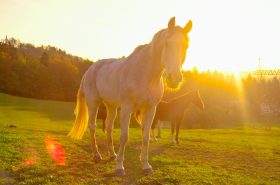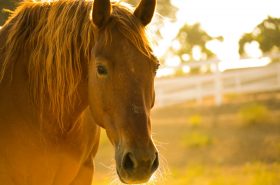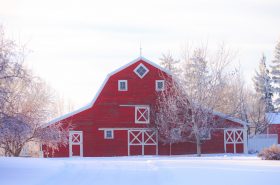Back in my horse showing days, I was pretty handy with a pair of clippers. Whiskers, bridle paths, fetlocks—I kept them all looking nice and neat. Once I got older and swapped horse shows for the barrel pen, I became less consistent with trimming and keeping a bridle path was mainly all I was concerned about. But imagine my surprise when I started learning and writing about natural horse health and discovered that those whiskers I’d once trimmed actually had a very important purpose!
As we all know, a horse is covered in hair, but hairs on different parts of the body all have a different purpose. For example, the tail is quite helpful for swatting away flies and other bothersome insects. A winter coat fluffs up in a process known as piloerection in order to create insulation and keep a horse warm. But the whiskers around a horse’s muzzle and eyes? They act as sensors, helping a horse gauge distance, evaluate temperature, explore the world around them, and even protect the tissues of their face.
If you think about the length and shape of your horse’s head, it makes sense that they would have a multitude of whiskers around the mouth and muzzle—an area they need to use on a constant basis but can’t exactly see well. Whiskers are even more helpful at night, when vision is more limited. Some researchers even believe that whiskers might help horses detect sound frequencies or even feel the energy of an electric fence without touching it.
A horse’s whiskers are actually quite sensitive, and this explains why many don’t like having them trimmed. And the question becomes—should we be trimming their whiskers at all? Horse owners and showing organizations seem to be slowly coming around to the idea that no, maybe we should not. In fact, in some countries such as Germany, it’s illegal to trim a horse’s whiskers, and the Fédération Équestre Internationale (FEI) recently banned the trimming of whiskers and ear hair for horses competing in their events.
So while, yes, it is still common practice to trim whiskers in many showing organizations and it is not technically harmful to the horse, it does reduce their ability to use their whiskers as nature intended. Something to keep in mind next time you reach for your clippers!
Love this post? We think you will like To Clip Or Not To Clip



